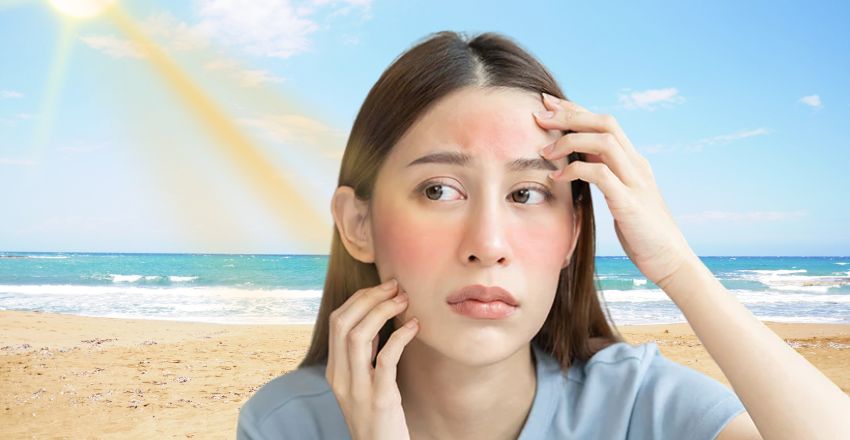Contact Info
-
Indirapuram: 080768 46266
-
Noida: 088105 60369
Anugraha Skin
A sun allergy is a skin condition that causes a rash after exposure to sunlight. The reactions can vary from mild irritation to severe symptoms. While avoiding sun exposure or covering your skin is the most effective preventive measure, several treatments are available to manage the condition. If you're experiencing sun allergies, understanding the type and severity of the reaction is key to choosing the right treatment. At Anugraha Skin & Laser Clinic, Dr. Monica Bambroo offers personalized and effective sun allergy treatment in Noida.

A sun allergy occurs when your skin develops a rash and sometimes additional symptoms after being exposed to sunlight. These reactions can vary in severity, ranging from minor discomfort to more serious symptoms that can interfere with daily life.
Several types of sun allergies can affect different individuals, depending on the cause, skin reaction, and the person’s skin type:
Anyone can experience a sun allergy, regardless of age, gender, or skin color. However, some types are more common in individuals with lighter or darker skin. Those with a family history of sun allergies or people taking certain medications (such as antibiotics, antihistamines, and birth control pills) may be more susceptible.
Sun reactions tend to be more frequent during the spring and early summer, when people spend more time outdoors, though the skin may become less sensitive with prolonged sun exposure.
While the exact cause of sun allergies is not fully understood, some studies suggest genetic factors or immune responses triggered by sun exposure could play a role. The symptoms typically occur hours or days after sun exposure and can vary in intensity based on factors such as:
Common symptoms include:
In rare cases, sun allergies can cause more severe symptoms, such as headaches, nausea, wheezing, or even life-threatening anaphylaxis (with solar urticaria).
No, sun allergies are not contagious. You cannot spread the rash to others.
To confirm if you have a sun allergy, it’s important to consult with a dermatologist. They can diagnose the condition through:
Treatment for a sun allergy depends on its severity and the specific type. Mild symptoms often improve with rest and avoiding the sun, but for more severe reactions, additional treatments may be needed.
In more severe cases, phototherapy may be recommended. This involves gradually exposing the skin to controlled UV light to help build up a tolerance to sunlight. Typically done over several weeks, this treatment can significantly reduce the likelihood of future reactions.
The cost of sun allergy treatment depends on several factors, including the type and severity of the allergy, the specific treatments required (such as medications, phototherapy, or corticosteroid creams), and the number of sessions needed. For more severe reactions, treatments like oral corticosteroids or phototherapy may incur higher costs. Additionally, ongoing care or follow-up appointments may add to the overall treatment cost. A consultation with a dermatologist will help provide a more accurate cost estimate based on individual needs.
Dr. Monica Bambroo is a highly experienced dermatologist specializing in treating various skin conditions and offers sun allergy treatment in Noida. With her expertise, Dr. Bambroo uses the latest treatments and technologies to manage and alleviate the symptoms of sun allergies effectively. She is dedicated to providing personalized care, ensuring that each patient feels comfortable and confident throughout their treatment journey.
If you are struggling with a sun allergy, don't wait for your symptoms to worsen. Contact Dr. Monica Bambroo today to schedule a consultation and find the best treatment plan for your skin!